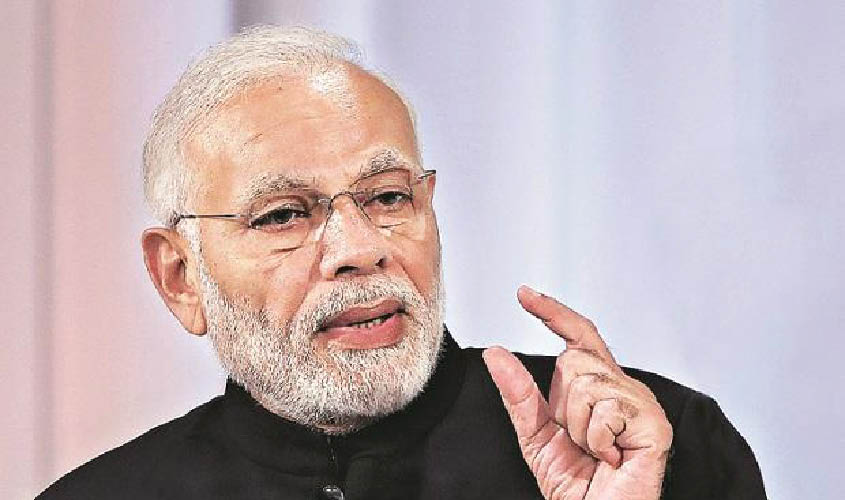Prime Minister Narendra D. Modi has pointed out in a comprehensive manner the fact that the issues agitating the minds of a section of the farming community are not in fact the way they believe the situation to be. Rather than abolish the existing structure of agricultural markets, what has been done through the new farm laws is to widen the choice of the farmer. It is the farmer who will have the final say on which agency he wishes to sell his crop to, not the middleman. In the earlier system, where there was a monopoly, the farmer had no such choice. Unlike in the past, when middlemen seldom registered in the tax database, they have under the new laws to be compliant of income-tax and GST norms, as indeed do other citizens engaged in trade and professions barring the production of agricultural commodities. The middleman is not the farmer, and hence the benefit of zero taxation ought not to be extended to him in the manner that has been the case for far too long. The salaried class has long suffered an outsize burden of paying tax in a way avoided or evaded by too many in the country. A broader tax base is important as it would give Government of India more funds to lavish on the farmers. Hence the laws actually benefit them rather than do them harm in the manner that those unhappy at the loss of their trade monopoly are claiming. It is a sign of the unrestricted political warfare that is going on in India that even political parties that favoured the very laws that have been enacted by PM Modi are now filling the streets and television screens with their protests at the passing of laws that they themselves designed but failed to pass. Such a failure was deliberate, as the parties concerned did not want to antagonize powerful vested interests who ensured that their huge profits remained untouched by reform. When the laws were passed and came into force, those who were adversely affected by them have worked out a strategy designed to create chaos in the national capital. Every embassy, legation and high commission in Delhi must be sending message after message of the anarchic situation where the capital city of the world’s largest democracy has been blockaded for close to a month. Should the government take back the laws, its credibility as an institution of governance would be affected across the world. In the UK, Prime Minister Edward Heath blinked at the strike by coal miners whose leaders were loyal to the Labour Party. His government lost credibility and had to quit. In contrast, Prime Minister Margaret Thatcher ensured that the policies she espoused remained on the statute books and implemented rather than discarded. That PM Modi should go the Edward Heath way is what his foes are eager to engineer, but it is doubtful that they will succeed. Modi 2.0 has seen a series of reforms that was absent in Modi 1.0, and this must continue.
It is a situation fraught with consequences for the future of India. After the happenings last year, when road traffic into and out of Delhi was blocked for months because of an agitation over issues tangential to the national capital, once again the city is facing a dangerous situation because of the blocking of roads by a section of those involved in the effort by opposition parties and others to roll back the three farm laws passed by both Houses of Parliament, and which are now the law of the land. Several errors have been made about

